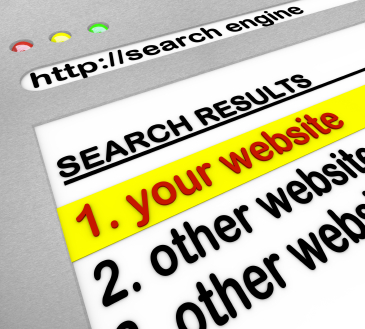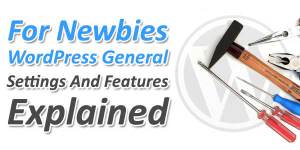Everyone wants their website, blog or webpages to get to the top of the SERPs (Search Engine Results Pages). As a result, there are a lot of unscrupulous companies that prey on startups, bloggers and small business owners, promising to get their website to the top of the search results using SEO.
Unfortunately, first page search results is something that simply cannot be guaranteed. That’s not to say that SEO is useless; far from it. However, SEO and good content take a while to start performing, and it takes time and practice to get the ultimate SEO power page right. Google only updates its PageRank every quarter, pages can take a while to find their way into the search engine’s index, and so on. So while great SEO enhanced content can make a difference, it is no guarantee of success… even in the long term.
So why did I entitle this article “immediate top page search results” if it is simply not possible for me to guarantee that your pages can get there? The answer is that while your own pages may not get there, or may take a while to get there, there are always pages that have to appear on top. In other words, some website will always appear on top – otherwise Google, heaven forbid, would not have results to return.

The trick to getting your site present and visible immediately on the top page is the following:
Research up to five SEO keywords and phrases for which you want your site to appear at the top of the SERPs
Search for each keyword and phrase on Google and make note of the top ten results for each
Visit each of these top pages and add content in the form of comments, contributions, articles, ads, and so on (i.e. often winning pages allow comments from members)
Ensure you are able to add a backlink to your pages from each of these contributions
Periodically repeat the process to cover new pages as they bubble to the top
By regularly repeating this process you ensure that your site or blog consistently has backlinks from the top rated pages for those specific keywords. From an SEO perspective it is absolutely vital that you include the keyword or keyphrase in question, in the link text.
By doing this you are telling Google that the pages it ranks most highly for a given keyword often reference your own pages. This in turn helps Google to determine that your pages’ authority on that niche topic is great, and so your page’s rank will improve steadily. After all, if the best pages all reference your pages then you must be an authority on the subject.
Ok, so this technique won’t get your actual page to the top of the search engine results immediately, but it does have the following immediate and long term benefits:
High quality back-links from high ranking pages
SEO enhanced links (containing the keywords and phrases you want) back to your site
Exposure to traffic visiting the top search results
SEO benefits from being consistently referenced from the top page results
Consistent top search results page visibility
You’ll often find that pages that rank highly for the keywords you want are not necessarily from huge wealthy websites. They may well be from smaller sites that are willing to allow you to add content, or enter into some sort of link sharing partnership. It is even possible to get your site mentioned on the all prevalent top place Wikipedia pages, provided there is a compelling reason for adding content about your site or blog to their page.
Meta tags are HTML codes that are inserted into the header on a web page, after the title tag. In the context of search engine optimization, when people refer to meta tags, they are usually referring to the meta description tag and the meta keywords tag.
The meta description tag and the meta keywords tag are not seen by users. Instead, these tags main purpose is providing meta document data to user agents, such as search engines. In addition to the well-known meta description and meta keywords tags, there are other useful meta tags, including the meta http-equiv tag, meta refresh tag, the meta robots tag, the meta copyright tag, and the meta author tag, etc. These tags are used to give web browsers and search engine spiders directions or data on various information.
If you really feel like getting technical, take a look at this document . This is put out by the governing body on web design, and is an official W3C recommendation.
Create Your Site Map With On-line Site Map Generator
Optimizing Your Blog Title Tag For Search Engine Better SEO
“All In One SEO Pack” Plugin For Blogger
20 Top Blog Directory To Submit Your Blog
Submit Your Website Or Blog For Free Widget
Free High PageRank BackLink For Your Blog And Websites


















“thanks for SEO”
from::”filesic.blogspot.com”
You Are Welcome…
thanks a lot its so helpful this website 🙂
from: http://www.funny-origami.blogspot.com
You Are Welcome…
Thank you for this useful information. From
placeofsoftware.blogspot.com
You Are Welcome Here To Visit Us…